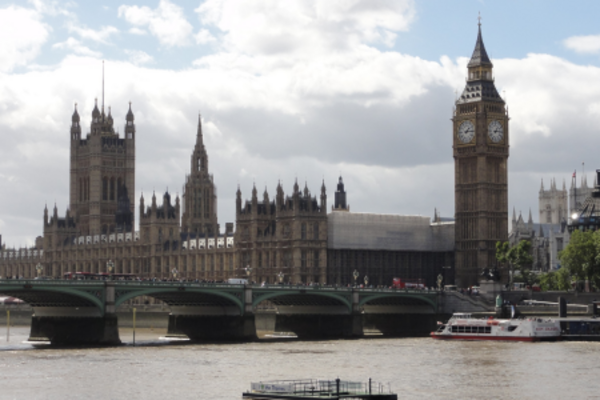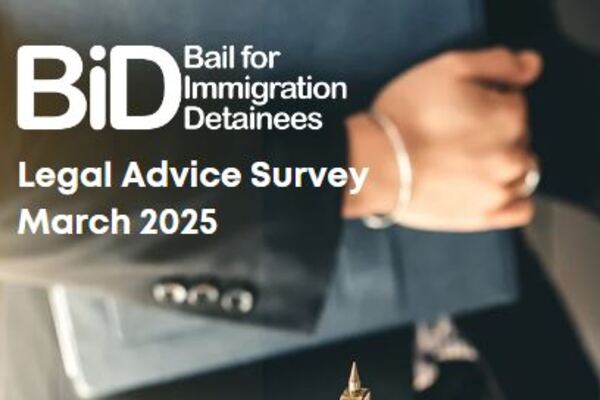SM vs The Lord Chancellor’s Department
BID intervened in the case of SM vs the Lord Chancellor’s Department, a case concerning the lack of legal aid immigration advice for people detained in prisons under immigration powers. People held in prisons under immigration powers face multiple barriers to accessing justice, with very limited access to communication with the outside world and, crucially, no free legal advice service, unlike immigration removal centres which operate a legal advice surgery. The need for legal advice is particularly urgent given that people in immigration detention face deportation proceedings and potentially long periods deprived of their liberty.
In a judgment handed down today, Mr Justice Swift found that the current system is discriminatory and unlawful. He concludes his judgment:
“the failure to afford immigration detainees held in prisons access to publicly-funded legal advice to an extent equivalent to that available to immigration detainees held in IRCs under the DDAS, is in breach of Convention rights.” (para 38)
BID provided assistance to the claimant, SM, when he was detained in prison under immigration powers, and referred him to Duncan Lewis solicitors. At this point he had been without solicitors for 10 months and unable to appeal the refusal of his asylum claim. Alongside providing legal advice and representation to people in the same situation as SM, we have been working methodically to collect data to illustrate the systemic nature of the problems faced by SM. This formed the basis of our evidence to the court.
BID has been challenging the use of prisons for the purpose of immigration detention since its inception in 1999 and this judgment represents a significant breakthrough. The lack of legal advice is just one element of the broader injustice faced by people detained for immigration reasons in prisons. The fight to bring an end to this inhumane practice continues.
The judgment follows a stepping up of campaigning to end the use of prisons for immigration detention altogether. In December 2020, 40 organisations supported BID’s letter to the government calling for the government to end this harmful practice. A further 123 people also used BID’s template to write to their MPs to this effect.
The judgment means that the present state of affairs is unlawful and the government will be required to remedy the situation to ensure that people in immigration detention are able to access publicly funded immigration advice. This case recognises that there are systemic obstacles for people in prisons who are trying to access immigration legal advice. Other claimants may benefit from the case where they can show that they too have been disadvantaged by the failure to obtain legal advice while in prison.
Pierre Makhlouf, Assistant Director for Bail for Immigration Detainees and responsible for BID’s legal strategy, said:
“BID has shown that people in prisons are consistently disadvantaged when accessing justice. Their cases are often concluded without them having received any legal advice or representation at all. This discriminatory treatment has now been recognised by the High Court.
Immigration detainees in prisons often face deportation and permanent separation from their families, children and the communities where they have grown up, causing real suffering to many. Access to legal advice and representation in these circumstances is essential to assist people to put forward their claims to remain in the UK, and indeed so that they can apply for bail to be released from detention.”
The court held:
- The Lord Chancellor has not justified the difference in treatment in issue in this case (para 27).
- The terms of reference of a review being conducted by the Lord Chancellor’s Department aims to identify “[…] the best way to provide equal access to high quality specialist immigration and asylum advice to immigration detainees in both prisons and non-prison detention locations”. The fact that the “terms of reference are framed in terms of achieving equality of access not in terms of whether such equality of access is possible […] is a practical acceptance that there is a difference of treatment on a significant matter that needs to be addressed” (para 32).
- Explanations by the Lord Chancellor’s Department as to the difference in treatment ‘misses the target’ as this is not regarding the form that the advice scheme in IRCs takes “but the function it provides: initial access to publicly-funded legal advice, in particular on the availability of bail and on any matter going to the legality of the person’s detention. That function could be achieved in a range of ways none of which need mimic the particular arrangements of the DDAS [the IRC scheme].”
- Whether or not advice services can be provided remotely needs to be properly addressed. This could, for example be by telephone.
- The Lord Chancellor has sought to justify the difference in providing an equivalent advice service to that which is provided in IRCs when what would need to be justified is “the absence of a functional equivalent […] i.e. an arrangement under which initial legal advice on matters such as entitlement to bail is available without charge and without reference to the financial or merits eligibility criteria. For now, the evidence available does not make good a justification of the present difference in treatment” (para 37).
Maeve Hanna of Allen & Overy LLP solicitors who represented BID said, “We are delighted to have represented BID on a pro bono basis in this important case which stands to benefit people detained in prisons under immigration powers. BID’s work for these individuals is hugely important and its practical and legal expertise can make a real difference in interventions, such as in this case.”
BID is grateful for the generous pro bono help from counsel, including Laura Dubinsky (Doughty Street Chambers), Eleanor Mitchell (Matrix Chambers), Dan Clarke (Doughty Street Chambers), and the incredible team of solicitors at Allen & Overy LLP, including Andrew Denny, Maeve Hanna, David Siesage and Hannah Pye. We would also like to thank Duncan Lewis Solicitors for all their hard work on this issue and for bringing this challenge.









